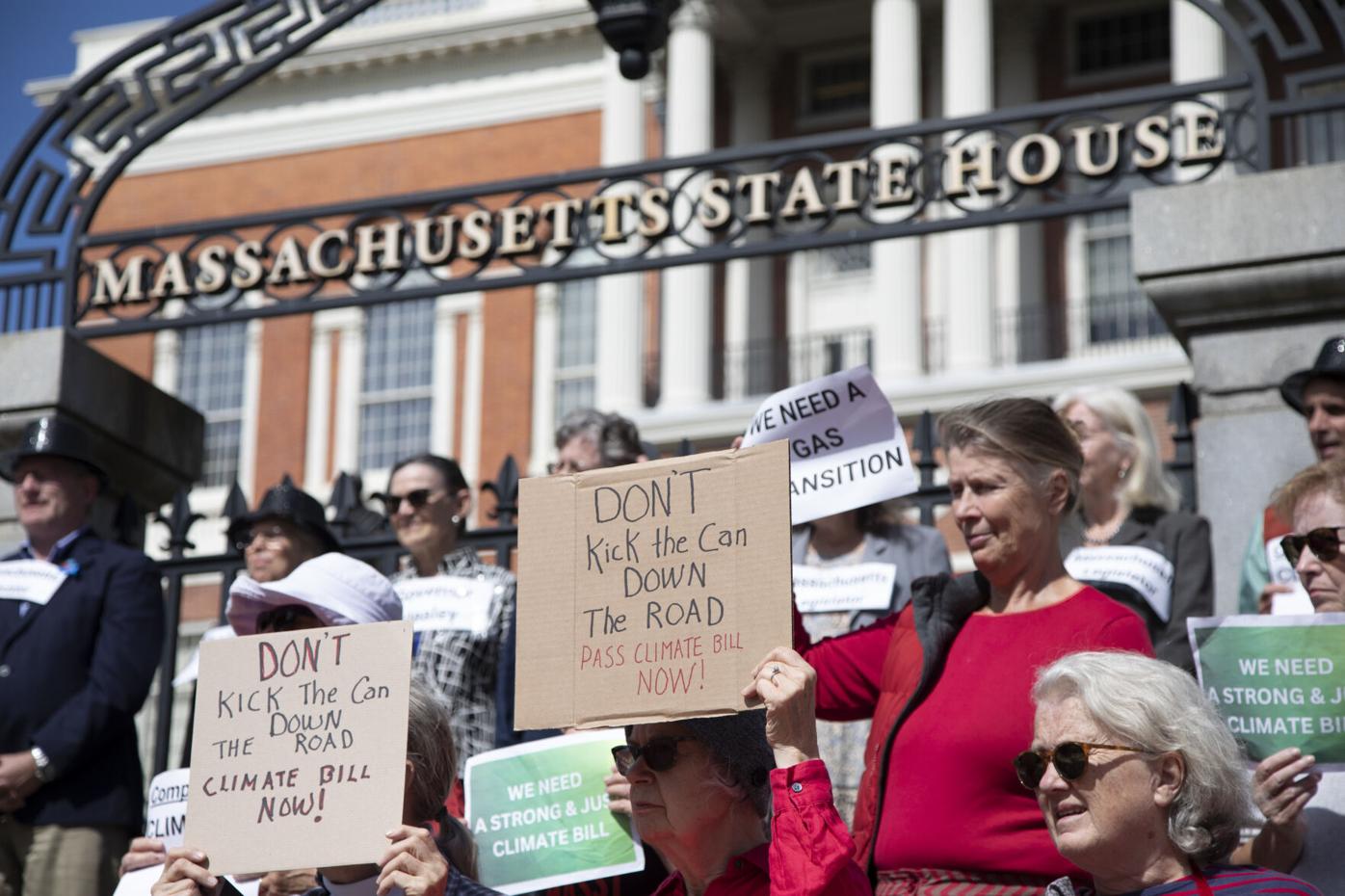Boston Green Action commends Mark Dyen and Lee Ketelson for this timely and insightful commentary on the recent collapse of MA’s climate bill. Here is their analysis from Energy News Network (September 26, 2024) in full:
“This year’s Massachusetts climate bill lies unconscious on the floor of the State House with a pipe next to it. Observers suspect foul play. The question is, who did it?
As with all good mysteries, the first thing you should consider is who had the means and the motivation. A key goal of the energy and climate bill was to accelerate the renewable energy and electric infrastructure upgrades needed to shift us to clean electricity. Thus, it seems unlikely that the solar industry or electric companies are guilty. They stand to lose too much from the bill’s possible death. Instead they are calling for help on their phones and sobbing.
According to press reports, the legislative fight is over the gas provisions in a climate bill passed by the Senate. During negotiations something happened behind closed doors that left the climate bill on life support. The gas companies are positioned near the victim, looking solemn, but they don’t seem to have any tears in their eyes. Why?
Massachusetts gas companies are in the midst of a 20-year program to replace thousands of miles of gas pipes across the state, digging trenches and blocking traffic. The total cost to us gas customers for this work is predicted to be more than $42 billion — double the cost of Boston’s megaproject, the Big Dig, when adjusted for inflation.
Already, heat pumps are outselling gas furnaces in New England and nationally. The direction of the future is so clear that even National Grid is aiming to upgrade 80% of all Massachusetts buildings to efficient, electric equipment within 25 years.
So these new plastic methane gas pipes that will get paid off by customers over the next 60 years clearly aren’t intended primarily for the benefit of the customers. Who then are they intended to benefit?
Gas companies don’t make profit from selling gas; that’s a pass-through cost. Their profit comes from capital expenditures such as replacing pipes, paid for by increased gas bills for families.
The Senate climate bill’s moderate response to this unwise spending is to gradually end the current financing system that pre-approves pipe replacement over other approaches. The gas companies would still be obligated to keep the pipes safe, but by having to pay the upfront cost of the work, the gas companies would be more careful about which pipes to replace and how much they paid for it. The Senate bill would also require the gas companies to prove each new pipe is more cost effective than other measures such as leak repair. Without these changes, gas bills will continue to rise for families, and so will gas company profits.
So the gas companies stand near the victim with $42 billion of motivation and with plenty of cover thanks to Massachusetts’s notorious track record as having one of the least transparent legislative processes in the country. However, are all of the gas companies equally motivated?
Of the six gas companies in the Commonwealth, the multinational National Grid is likely to receive almost 70% of the remaining pipe replacement funds — partly because so many miles of National Grid’s pipes are aging, and partly because National Grid spends almost twice as much per mile as the other companies. Given the tens of billions of dollars at risk, it’s clear which company is the most likely to have fingerprints on the pipe.
We call for legislative leaders to revive the climate bill negotiations in order to end this gas company boondoggle. The legislature should call a formal session this fall to pass a comprehensive climate bill to rein in the gas companies and to start to transition to clean heat. Families cannot continue to pay mounting gas bills and navigate blocked-off roads so that for-profit gas companies can continue to milk this cash cow for their shareholders.”
Mark Dyen is a member of the Statewide Legislative Team for 350 Mass. Lee Ketelsen is a member of the Clean Heat Clean Air state team of Mothers Out Front Massachusetts.
Image: State House News Service


